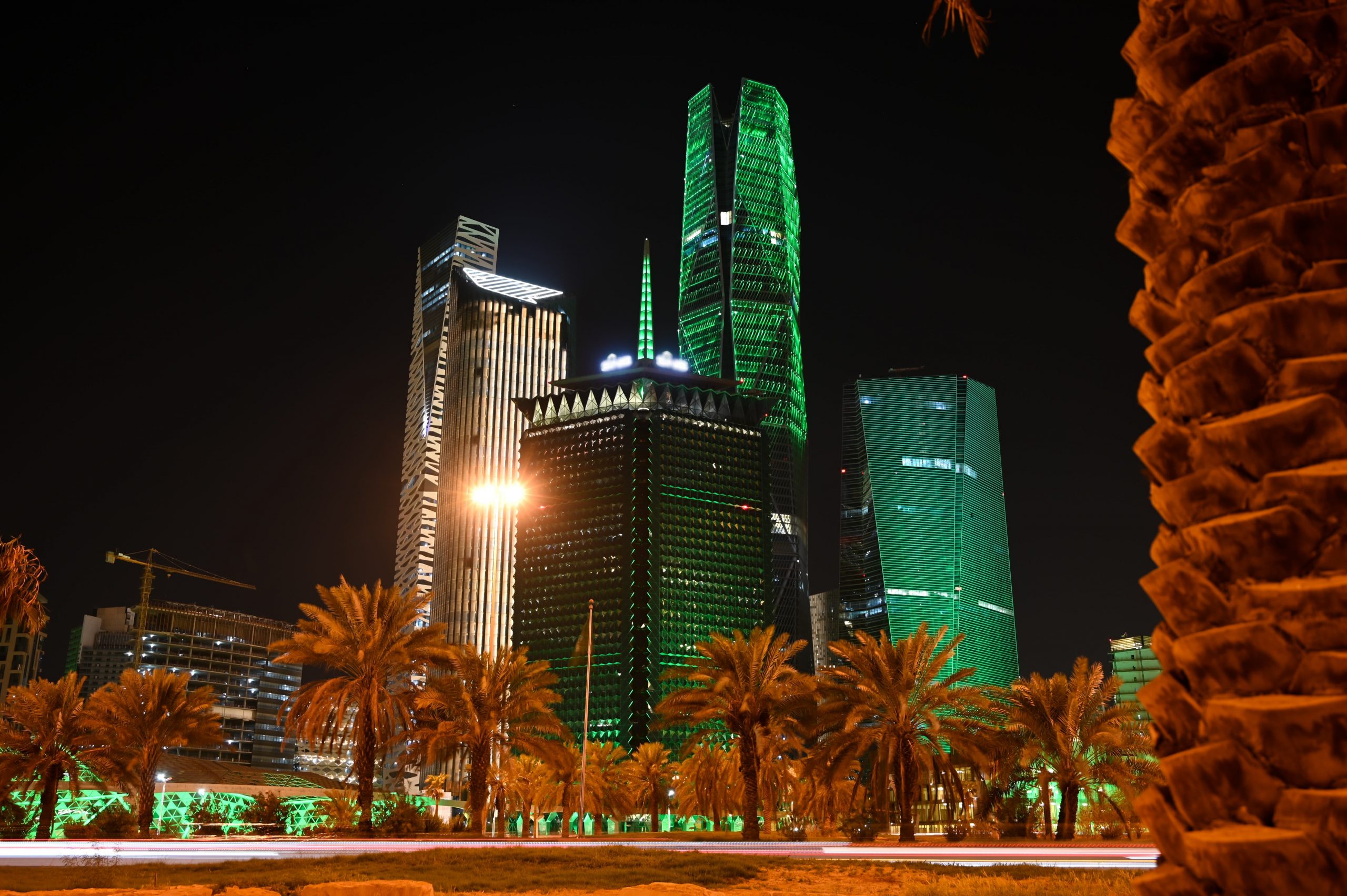Businesses setting up and expanding in Saudi Arabia from the USA are cementing their presence in one of the world’s most strategic markets, motivated by an ever-growing US-Saudi economic corridor. Bilateral trade between the two nations reached an impressive $25.9 billion in 2024.
This accelerating momentum in company formation in Saudi Arabia from the USA is largely down to Vision 2030-led groundbreaking initiatives.
This is increasingly evident by the renewed interest observed by US investors and businesses in Saudi’s high-growth sectors, including tourism, IT, and energy.
US Investors Cash in on Saudi’s Green Transition
Saudi’s clean energy transition creates substantial opportunities for US energy innovators. This shift has opened the door for several groundbreaking agreements between Saudi and US entities, establishing a foundation for robust cross-sector collaborations.
By May 2024, Saudi Aramco formalized strategic MOUs with US-based Aeroseal, Spiritus, and Rondo to advance energy-efficient technologies and carbon-reduction solutions.
Simultaneously, energy tech firm Baker Hughes expanded its Dammam facility to enhance local capabilities in critical areas like carbon capture and hydrogen production.
Such crucial technologies now form the cornerstone of Saudi’s energy diversification strategy.
Saudi Arabia’s commitment to green initiatives has created sustained demand for global expertise in sustainable infrastructure development, advanced energy storage solutions, and renewable energy integration systems.
For instance, the NEOM Green Hydrogen project is backed by the US-headquartered industrial gases firm Air Products, alongside the Saudi utility developer Acwa Power and the Public Investment Fund (PIF).
With Saudi Arabia committing $180 billion to renewable energy initiatives by 2030, more US companies will be eager to set up in Saudi Arabia and strengthen their moats in the clean energy market.
Notably, nuclear energy emerged as a key area of elevated ties between the US and Saudi. Advanced talks surrounding the establishment of the commercial nuclear industry in Saudi Arabia, backed by US expertise and tech are underway. The deal is the result of the civilian nuclear technology agreement.
IT Sector Fuels US Business Expansion in Saudi Arabia
Saudi’s IT sector has entered a phase of explosive growth. This was highlighted at the 2025 LEAP conference held in Riyadh last February.
At LEAP, $25 billion worth of tech investments were announced. Notable partnerships unveiled at LEAP include a $1.5 billion collaboration between US-based Groq and Aramco Digital. Both parties confirmed plans to enhance cloud and AI infrastructure. Meanwhile, US tech giant Google introduced new AI-driven digital infrastructure.
This was accompanied by the launch of a new computing cluster to meet domestic and global demand.
Using the LEAP platform, global CRM firm Salesforce said it plans to invest $500 million in Saudi’s AI sector.
A few weeks earlier, Salesforce announced the establishment of its regional headquarters (RHQ) in Saudi Arabia, demonstrating long-term growth projections in the IT sector.
Another notable recent entrant in the IT sector and customer experience (CX) field is ibex.
Leveraging a global workforce of 30,000 employees, ibex is poised to lead the customer experience (CX) outsourcing market and support the country’s transformation into an innovation-led economy.
In fact, the fintech sector represents yet another promising avenue for US expansion in Saudi Arabia. This is mainly due to the Kingdom’s business-friendly regulations and the nationwide push toward digital banking services. Looking ahead, Saudi aims to attract 525 fintech companies to its shores to generate 18,000 fintech jobs.
These strategic objectives will serve as the catalyst for the accelerated expansion of US companies in fintech and the wider Saudi IT sector.
Saudi’s Tourism Sector Opens Doors for US Industry Leaders
The evolving growth trends in the tourism industry are propelled by the government’s aims to attract 150 million visitors annually by 2030 and expand the sector’s share to 10% of the national GDP.
Within tourism, entertainment opens up intriguing avenues for USA businesses. Registering an entertainment business in Saudi Arabia from the US unlocks access to skilled labor, advanced production capabilities, event infrastructure, and international connections to create engaging content.
In 2018, AMC Entertainment pioneered the reintroduction of cinemas in Saudi Arabia. In 2024, the company expanded its partnership with Saudi Entertainment Ventures (SEVEN) to accelerate the development of cinema complexes throughout the Kingdom.
Concurrently, the entertainment-focused Qiddiya giga project is collaborating with US-based Six Flags to develop what will become the region’s largest water theme park.
Additionally, the Saudi hospitality sector is another primary magnet for US corporations to set up in Saudi.
Major US-based hotel chains like Marriott International Inc. and Hilton Hotels & Resorts are accelerating investments to respond to the drastic tourism surge, aligning with the Kingdom’s vision of expanding hotel capacity to 500,000 rooms.
Supporting this tourism expansion is a robust air travel sector. To enhance air connectivity between Saudi and the US, Riyadh Air, Saudi’s second national carrier, recently established a strategic partnership with Delta Air Lines. The agreement includes the provision of various benefits for consumers traveling between Saudi and North America.
This collaboration creates the perfect backdrop for US companies seeking to expand their presence in various tourism subsectors in KSA, including hospitality management, event production, digital tourism solutions, and destination marketing services.
US Automotive Companies Eye Growing Electric Vehicle (EV) Market
Saudi’s EV industry has seen tremendous growth, supported by ambitious targets to boost the adoption of EVs and position the Kingdom as a global manufacturing hub. Tesla’s recent entry into the Saudi market is indicative of a robust EV charging infrastructure and supply chain.
On its upward trajectory, Saudi Arabia aims to produce 500,000 EVs annually by 2030 and convert 30% of cars in Riyadh to electric.
This approach to EV adoption creates immediate opportunities for US firms to establish early market positions in EV technology, battery storage solutions, and integrated sustainable mobility systems.
Lucid Motors, partially owned by Saudi Arabia’s Public Investment Fund, exemplifies this potential through its manufacturing facility in King Abdullah Economic City.
With plans to produce 155,000 electric vehicles annually, this operation positions the Kingdom as an emerging player in the global EV supply chain while creating downstream opportunities for US auto suppliers, software providers, and mobility service companies.
In diverse sectors, Saudi’s built a reputation of being the “land of opportunity” for global businesses, particularly US firms looking for a future-focused, reliable market to relocate their endeavors.
How to Set Up Your Business in Saudi Arabia from the USA: Company Formation Checklist
To register a US company in Saudi Arabia, businesses must submit essential documents and information about the company, including a certificate of incorporation, the memorandum of association (MoA), and articles of association (AoA), as well as an audited financial statement.
To complete the business setup process in Saudi Arabia, it can be viewed in the three-stage market entry roadmap, a company must register with more than 10 ministries and governmental entities. Afterwards, they need to pick an office location to obtain a nationally registered office space and get a national address.
After incorporating a business in Saudi Arabia, it is crucial to get the general manager’s Iqama and complete registrations on key government portals, including Muqeem, Absher, Qiwa, and Mudad. The entire process ends with opening a corporate bank account.
US businesses are then required to hire staff in compliance with the Saudi quota and issue visas for non-Saudi staff.
Engaging third-party service providers like AstroLabs is advantageous to maintain compliance with post-setup considerations and support with key business areas such as payroll management, HR and accounting.
Frequently Asked Questions (FAQs) About USA Business Expansion in Saudi Arabia
1. What are the key benefits of US companies expanding into Saudi Arabia?
US businesses benefit from Saudi Arabia’s strategic location, investor-friendly regulations, tax incentives, and access to a fast-growing economy backed by Vision 2030 initiatives. Typically, US businesses can incorporate 100% foreign-owned entities in Saudi Arabia across many sectors.
2. What industries offer the best opportunities for US investors?
Main sectors that provide significant growth potential for US companies in Saudi Arabia include:
- Energy (renewables, hydrogen, and carbon capture)
- Technology (AI, cloud computing, and cybersecurity)
- Construction (smart cities and infrastructure)
- Tourism (entertainment and hospitality)
- Automotive (EV production and supply chain)
3. How can US businesses establish a presence in Saudi Arabia?
US businesses can either establish a branch office or a subsidiary company. The choice depends on the business’s overall objectives and desired scale.
It’s necessary to factor in the requirements and impact of each form on critical business areas, such as taxation and compliance.
4. What financial incentives are available for foreign investors?
Saudi Arabia offers very attractive tax schemes. For one, the corporate tax rate stands at 20%. Plus, there’s no personal income tax for employees in Saudi.
Additionally, strategic initiatives like special economic zones (SEZs) provide businesses with additional benefits. These include reduced customs duties and flexible labor policies.
Other initiatives include the new Standard Incentive Program, which provides support for over 200 projects in the industrial sector, with investments reaching up to SAR 50 billion.
5. What are the key steps to establish a US business in Saudi Arabia?
Setting up a US business in Saudi Arabia involves three main stages: establishing the legal foundation (1 month), compliance registration (1-2 months), and company activation (1 month). Via AstroLabs, the entire process is completed in less than three months.

